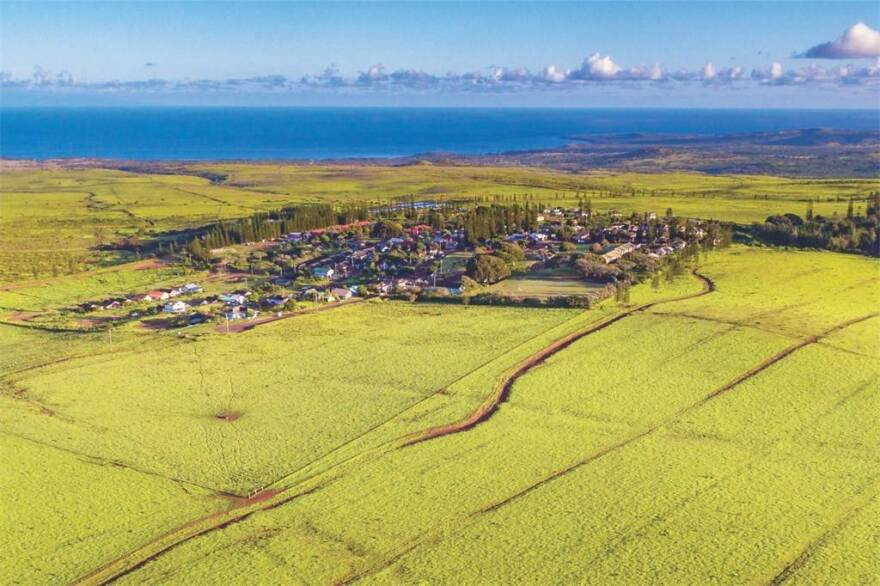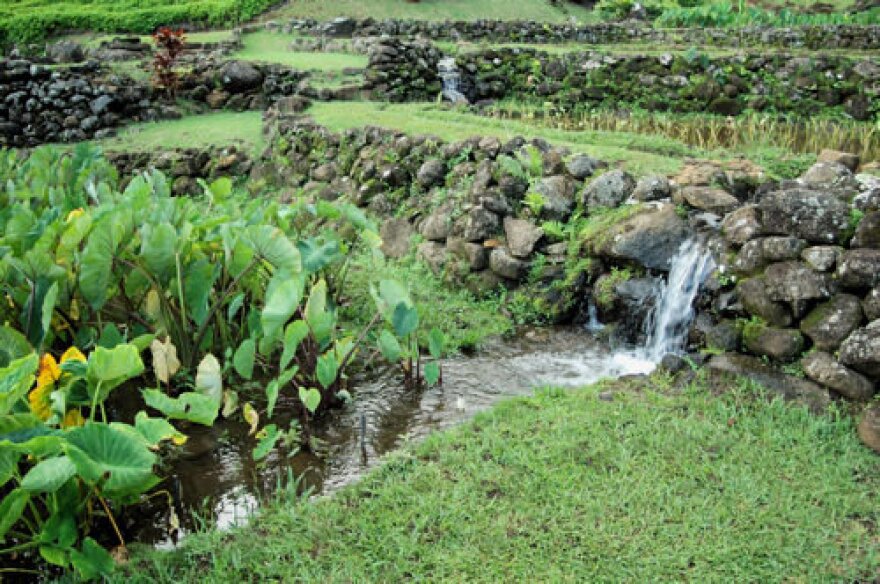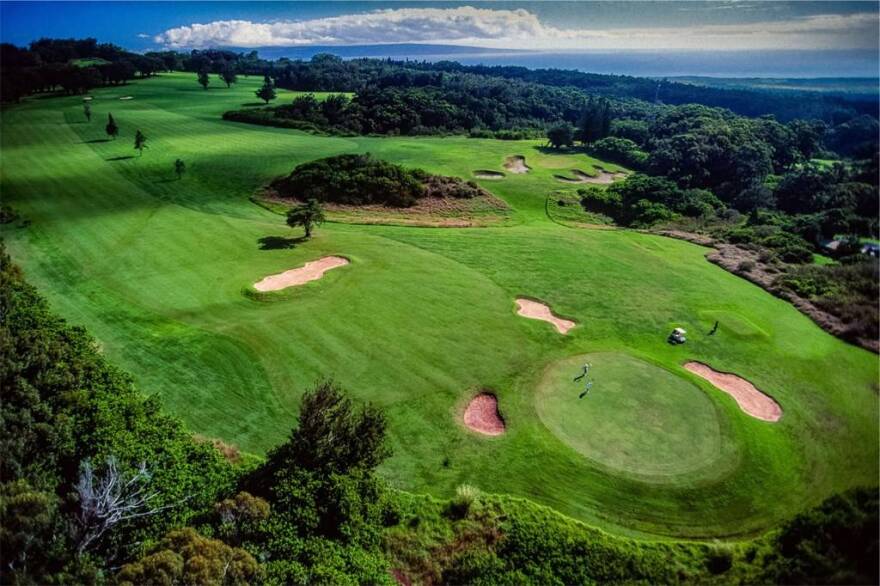A 25-year battle for water on Moloka?i continues today before the Hawai?i Supreme Court. HPR’s Ku?uwehi Hiraishi reports.
Opening arguments are being heard today in a case that pits one of Moloka’i’s largest land owners against public trust advocates over the right to water on the island.

“On Moloka?i, we dealt with water issues a lot,” says Moloka?i resident and Hawaiian homesteader Glenn Teves.
He says water can be an emotional issue on the island.
“The first homesteaders, they only got water on certain days of the week,” says Teves, “So from the genealogy till today, people still know that water is precious. Our ancestors had a hard time having sufficient water to survive not just to live but to grow crops.”

“In so many ways, fresh water will be the key to Moloka?i?s future,” says Kapua Sproat, an associate law professor and director of Ka Huli Ao Center for Excellence in Native Hawaiian Law at Richardson Law School.
She says the big question in the case is…
“Whether the law, especially our public trust law, will come to life in our community or will be relegated to book shelves in the law library,” says Sproat.

In Hawai?i, water is held in public trust. Since 1992, Moloka?i has been designated a ground water management area. This designation allows the state to protect the amount of water withdrawn from certain aquifers. There are 10 such areas in the state.

“The fact that the entire island of Moloka?i is designated as a water management area is incredibly significant,” says Sproat, “In these areas a higher level of scrutiny applies and there?s this water use permitting process.”
Moloka’i Ranch, which owns a third of the land on the island, began this permitting process in 1993. At first, they were granted the permit by the state Commission on Water Resource Management.

Then in 2007 the Hawai?i Supreme Court overruled the Commission saying the Ranch didn’t adequately show the impact of proposed withdrawals on public trust purposes like traditional and customary rights. All parties then entered a contested case hearing on the matter.

“In 2008, Moloka’i Properties said we can’t continue in the contested case, we’re losing money year after year and we’re hopeful that we’ll have a new buyer that can continue the contested case,” says Camille Kalama, an attorney with the Native Hawaiian Legal Corporation representing two individual parties in the case.
The state dismissed the contested case hearing citing these statements by Moloka’i Ranch, also known as Moloka’i Properties.

“Basically what is before the court tomorrow is, ‘Did the Commission make a proper decision by dismissing that old contested case or not?’” says Kalama.
While the court proceeding is narrowly focused on this procedural technicality, Sproat says the legal community will be watching the outcome of this case closely.
“You know the Hawai?i Supreme Court has been a really important back stop continually holding the water commission to its fiduciary duties under the public trust, and permit applicants to the high bar that private commercial users of water must meet if they wanna use our public trust resources for their private commercial gain,” says Sproat.




